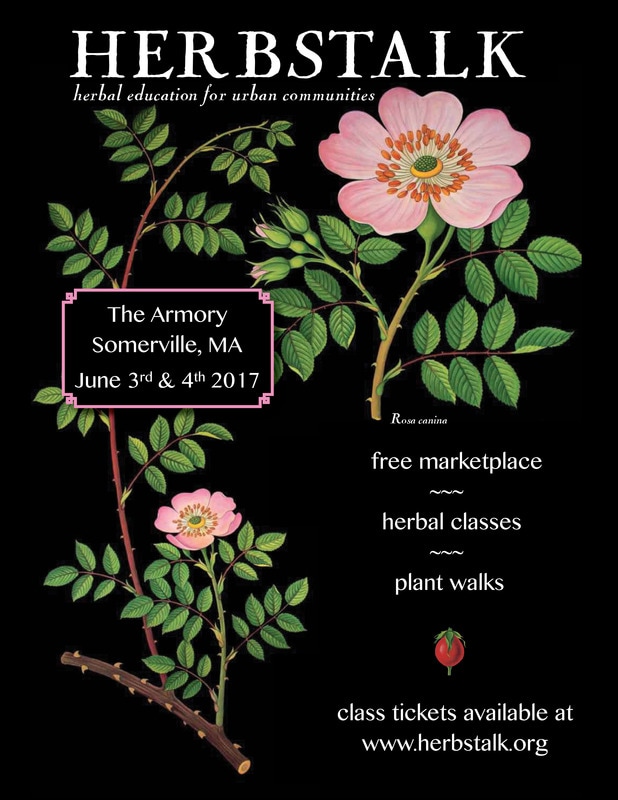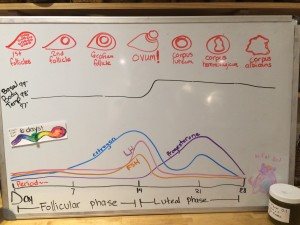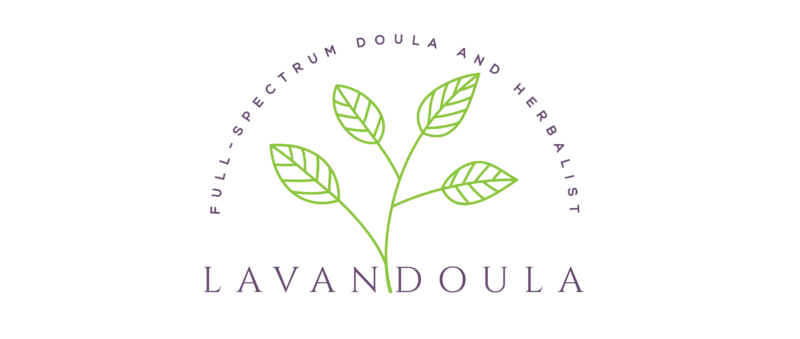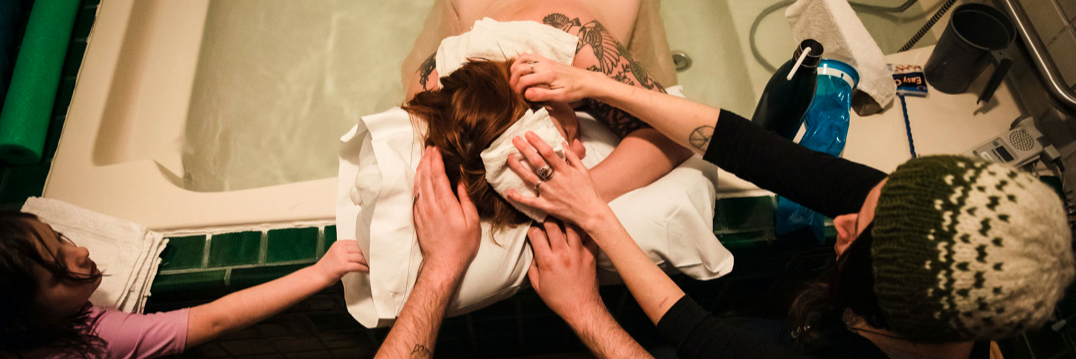September 25-27, 2020, BotanicWise, the 10th annual mid-Atlantic Women’s Herbal Gathering will be taking place online.
I happen to be one of the presenters this year, offering a workshop about herbal care for pregnancy loss. My plan is to focus on folks who experience pregnancy loss as well as those who are often caretakers or witnesses to others’ experiences around miscarriage or abortion.
Stay tuned for more herbal workshops. I’ve been reorganizing my offerings this year and am finally ready to relaunch my newest project, Birthkeeper Herbalism.
Abortion and Pregnancy Loss Resources
Abortion and Loss
The Boston Abortion Support Collective provides completely free support for people experiencing abortion, miscarriage or stillbirth in the Boston area. We have a small availability of affordable birth doulas, as well!
Backline is a judgement-free resource for folks considering what to do when they find themselves pregnant. They have a free phone line to discuss pregnancy options, and counseling before and after any decisions are made. Backline also started the resource Faith Aloud, in which clergy from various faith traditions are available to non-judgmentally counsel callers through decision making around pregnancy.
The Eastern Massachusetts Abortion Fund provides small grants to folks who need to access abortion care in Eastern Massachusetts in order to make abortion care more affordable.
The Pregnancy Panic Companion is a teen friendly resource for accurate information about pregnancy scares and available options.
Holding Our Space is an interactive community based around supporting those who have lost a pregnancy in any way. Stories of infertility, miscarriage, abortion, adoption, stillbirth and more are all supported and welcomed.
Herbstalk 2017
Herbstalk 2017 will be happening again at the Somerville Armory on June 3rd and 4th. Along with many other herbalists, I will be teaching a class at the event about herbal allies for pregnancy loss. Keep an eye out for the schedule falling into place, and I’ll see you at Herbstalk!
Interview with an Acupuncturist
Last week, I had the pleasure of making a little video interview with local acupuncturist, Angela Bell. She often works with folks who are trying to conceive (including with IVF and other fertility treatments), as well as during pregnancy and generally focuses her practice on women’s health. More about her practice can be found on her Facebook and website.
One thing I so adore about Angela is her desire to connect and highlight others who are birth workers in the Boston area. She holds networking events, and has continued to host a video series on her social media pages for other birth workers to highlight their work. She’s chatted with doulas, massage therapists, midwives, yoga instructors, lactation consultants and others about the work we all do with clients.
In our 30 minute interview, we cover what it means to be a “full-spectrum” doula. I talk about why I decided to become a doula, the work I do with the Boston Doula Project, how others doing this work can best support LGBTQ+ families. We also chat about placenta encapsulation, my practice in Western herbal medicine and what it means to be an advocate for folks in all of this work. If you’re interested to get to know me a little better, check out this video interview!
The Business of Being a Doula
A few folks in my life have recently asked how I feel about the divisive/controversial ProDoula articles that are circulating. Honestly, as someone who chooses not to use any social media, I probably would have missed this entirely if folks didn’t bring it to my attention. I was relatively preoccupied while attending two clients’ 37-week labors, organizing the year’s goals with the steering committee of the Boston Doula Project, and encapsulating another client’s placenta.
Generally, I think there is enough space in Boston (I can’t speak for smaller or more rural communities) for many types of doula practices and their clients. While some doulas have always argued that providing free or very low-cost services devalues doula work as a profession, others continue to provide free or very low-cost services because it is exactly what they are called to do. I absolutely believe folks need to charge a rate for their work that is sustainable to them. On-call support for labor is extremely valuable, and not just because the studies show doulas save thousands of dollars in healthcare costs. We literally prevent trauma (and hold space for trauma that exists) on a regular basis.
The ProDoula founder is right to say that plumbers don’t worry about people who can’t afford to hire plumbers, but birth is not the same as home repairs. Supporting one another in the childbearing year is something that people have always done, and are always going to do. We live in a time and place in human history where folks aren’t all having 15 babies, witnessing 10 younger siblings be born, hanging out around groups who are feeding babies at their chests, and having that community of support built in. We’re giving birth in hospitals, often in big cities far away from family. Most often, the first birth people witness is their own baby’s! We’re needing to pay people out of pocket to create a sense of that lost community support. This used to be culturally built-in, for everyone, for free.
I’m all for folks charging what they need to in order to make their work sustainable – that part’s important and isn’t typically emphasized in many doula trainings. Most doula trainings emphasize what’s normal in birth and postpartum, what’s not, how to be a compassionate and competent helper and how to plug into the extended community of resources for when you need to make referrals. These articles make it sound like ProDoula’s trainings emphasize profits, avoiding the local community (“ProDoula tells doulas to ignore local doula collectives — why fraternize with the competition?”) ostracizing new doulas, and not making referrals because your agency provides The Best And Only care.
- Kara Schamell, at Modern Mama Midwifery has tons of experience, especially in sanitation techniques and lab safety as a midwife. We back up each other’s placenta clients in the case of travel or client birth overlap.
- Jennifer Lynn Frye, at New England Placenta Encapsulation, who has a background in nursing, and has been providing this service since 2014. She was also part of the first-ever batch of Boston Doula Project trainees.
- Jennifer Lewis, at New Life Blessings has encapsulated over 250 placentas in MA, RI and CT.
Holding Our Space to Honor Pregnancy Loss
Holding Our Space is the community spearheaded by my friend and local doula Jacqui Morton. This project intends to bring more public conversation to the experiences of pregnancy loss, miscarriage and abortion, as well as space to grieve and find community and camaraderie with others who have gone through the same.
With a small grant from the Abortion Conversations Project, and collaboration with the Common Street Spiritual Center in Natick, MA, Holding Our Space will be hosting an event from June 16-18, 2016. There will be a common space for community to meet, grieve, share stories and work toward healing. Abortion doula and activist Brenda Hernandez will open the space with yoga on Friday night. Doulas will be available throughout the event to provide companionship, a listening ear or a hand to hold.
For more information, or to get involved with Holding Our Space, check out the tumblr and Facebook pages.
A Full-Spectrum Fertility Chart
A few weekends ago, I had the opportunity to teach first year apprentices at the CommonWealth Center for Holistic Herbalism while the school’s co-directors, Katja and Ryn, were out in Colorado at the American Herbalist’s Guild Symposium.
It was a really fun weekend. Kim from Blue Vervain Farm facilitated children’s health, my beloved roommate Gavin taught about men’s health from a refreshingly queer perspective, Danielle at Growing Habits helped with our cold and flu season materia medica and I was able to teach about women’s reproductive health from my full-spectrum doula perspective.
I began with giving some background on the fertility cycle. We are born with 4 million follicles. By the time we reach puberty, we have about 40,000, ready to mature one (or two)-at-a-time to be ovulated. Progesterone warms us, many hormones constantly in flux. Nobody’s cycle is quite as picture-perfect as the one I had fun drawing as a teaching tool.

I am grateful for the opportunity to speak about fertility, pregnancy prevention, birth control options, miscarriage, abortion, abortion options, pregnancy in the first, second and third trimester, labor, birth, breastfeeding and postpartum considerations all in one day. (Not to mention the herbs! It is an herb school, afterall…)
It is true that while nearly one third of pregnancies end in miscarriage, it is one of the most silenced fertility experiences. It is true that while one third of women in the US will have an abortion before age 45, cultural stigma hides that “normalcy” from the mainstream. It is true that while the majority people who choose to have an abortion are already parents, our cultural dialogue around fertility states that abortion and birth are two opposites, never to be touched upon in the same sentence, never to be considered within the same lifetime.
As a doula, I have supported women who struggled to conceive for years, after having miscarriages medically managed by D&C procedures. I have supported survivors of violence, who had to terminate pregnancies that resulted from brutal attacks on their bodies. I have supported substance users choosing abortion, queer families choosing gestational parenthood, and single moms bereaving their babies, born still. My practice is full-spectrum.

